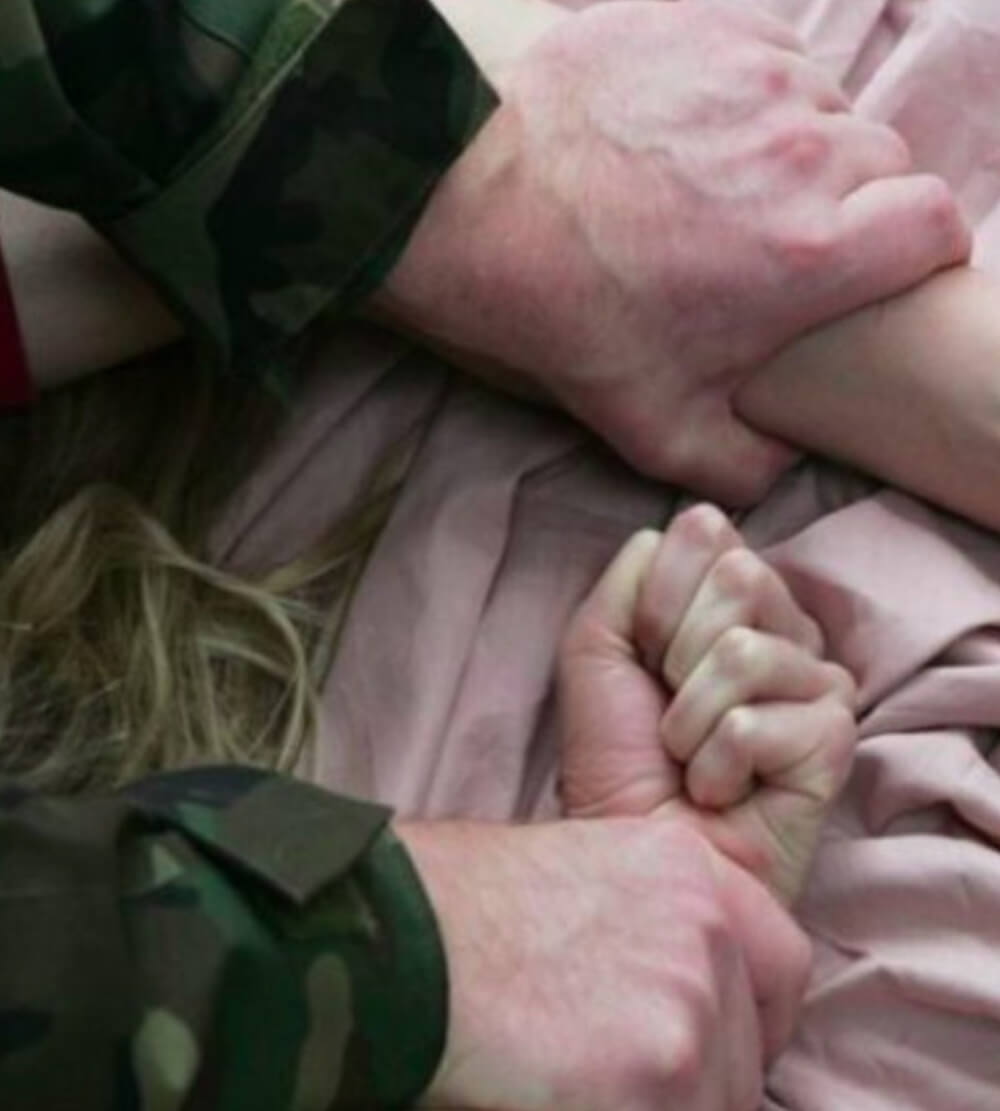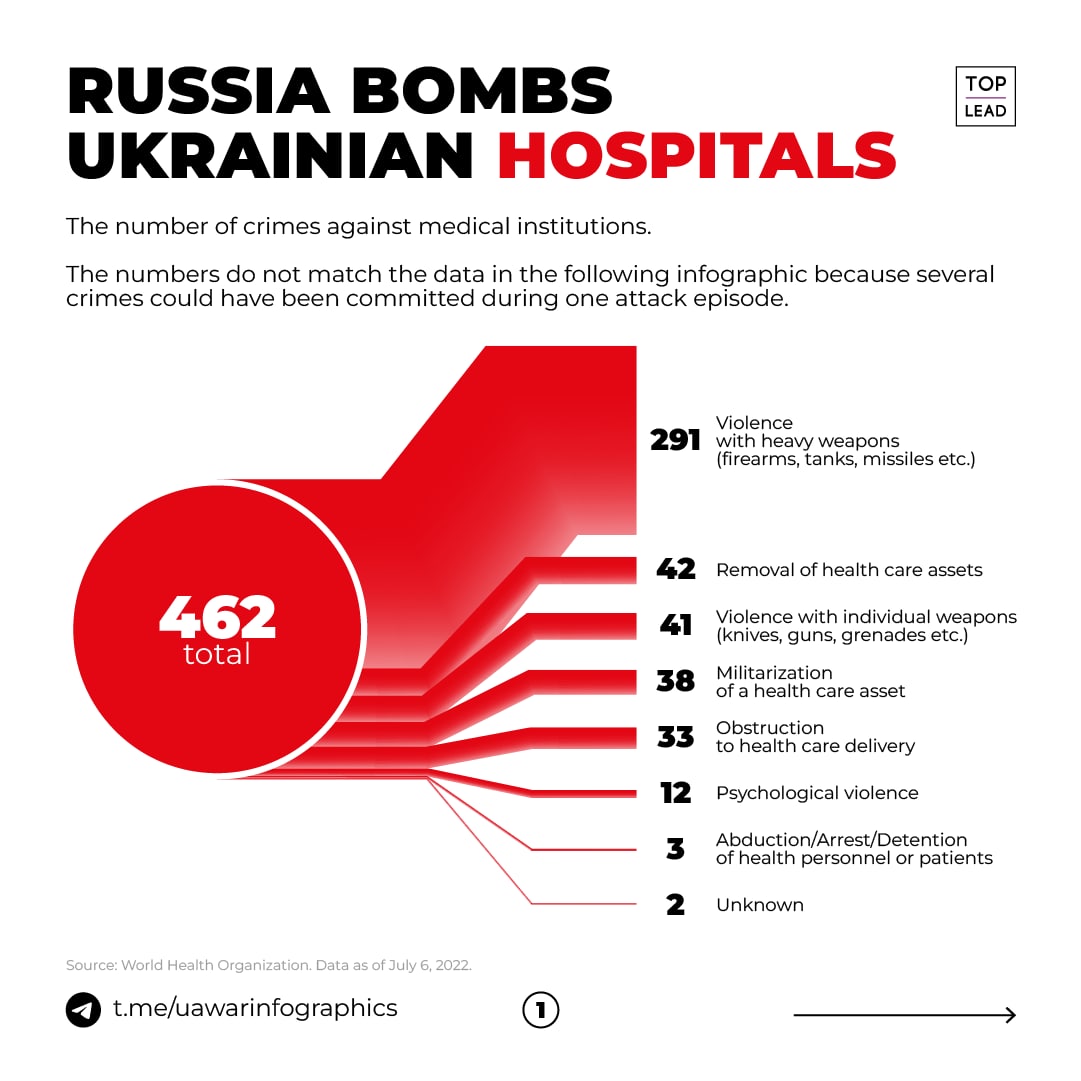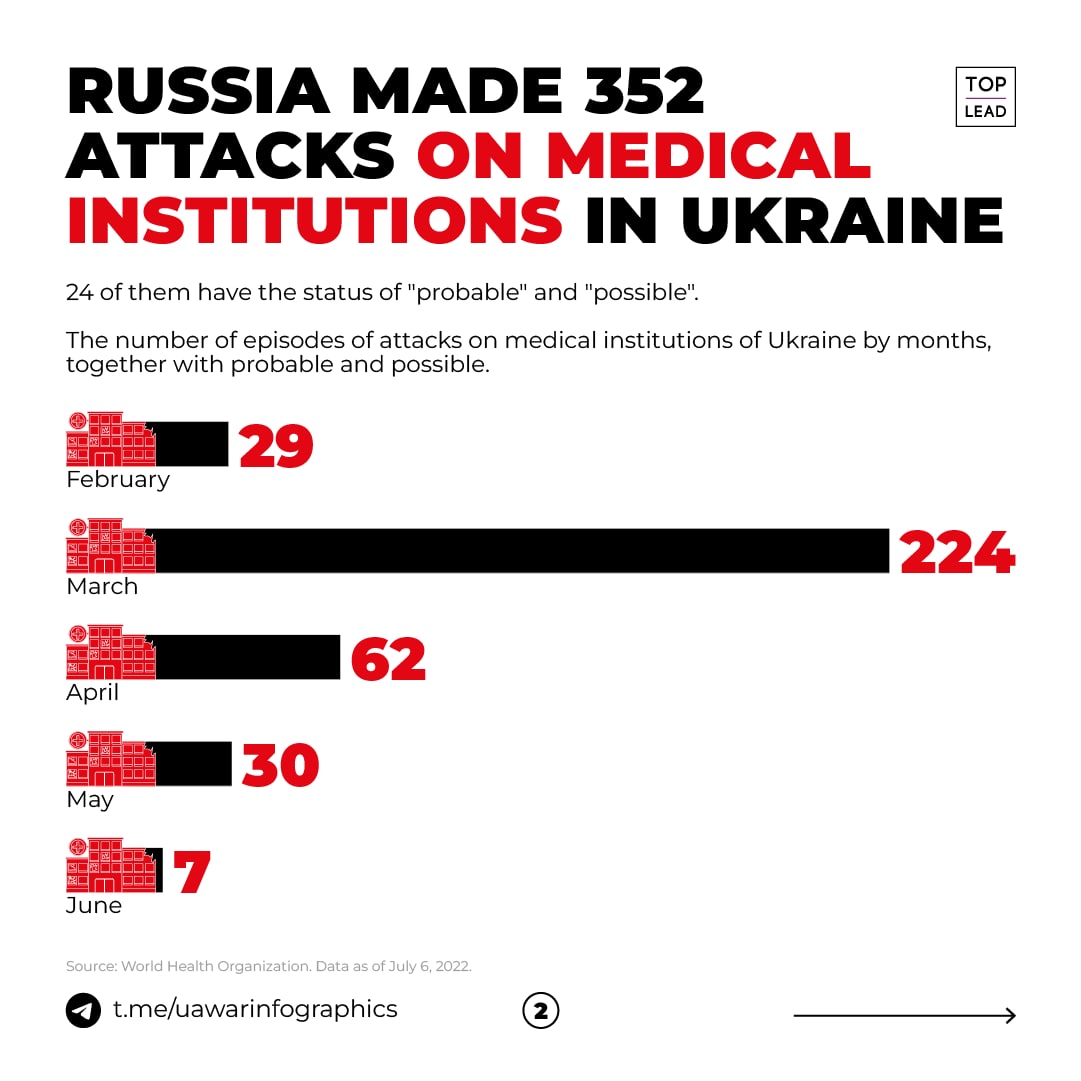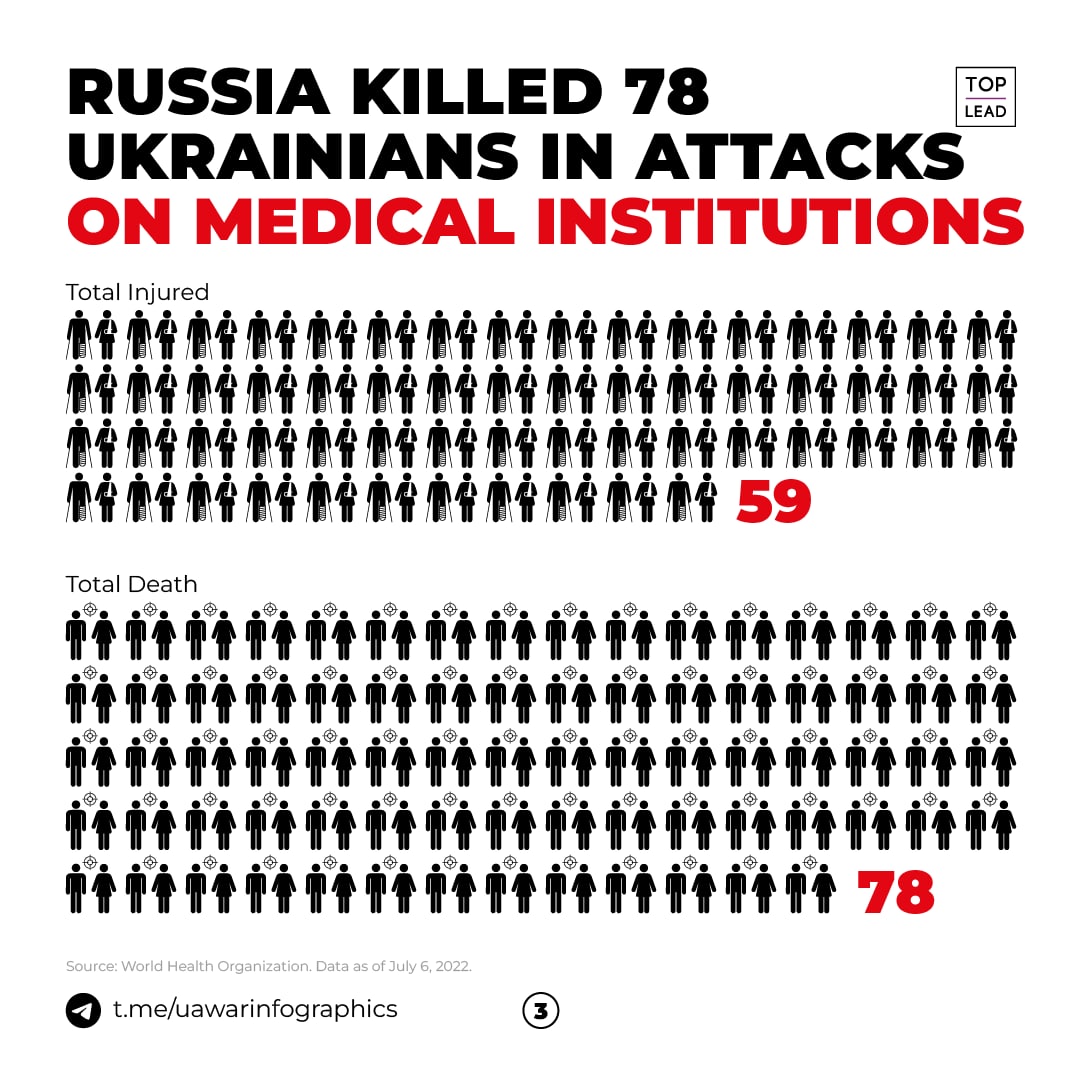To understand that Russia is committing crimes in this war, we must first determine what a war crime is.
the main principles of humanitarian law
Does the war also have laws?
- The war should be limited to achieving the political goals for which it began (for example, control over the territory) and should not cause unnecessary, needless destruction;
- The war must end as soon as possible;
- People and property that do not contribute to military purposes must be protected from unnecessary destruction and abuse.
The laws of war are designed to promote peace, alleviate the hardships of war, protect people from unnecessary suffering, and ensure respect for fundamental human rights for prisoners of war, wounded and sick, civilians and especially children.
We find the earliest attempts to restrain the behavior of individual soldiers and nations in order to alleviate the worst effects of war – in Torah.
For example, Deuteronomy 20:19-20 limits the amount of acceptable incidental environmental damage:
«When you lay siege to a city for a long time, fighting against it to capture it, do not destroy its trees by putting an ax to them, because you can eat their fruit. Do not cut them down. Are the trees people, that you should besiege them? However, you may cut down trees that you know are not fruit trees and use them to build siege works until the city at war with you falls».
Deuteronomy 20:10-12 requires the Israelites to make an offer of peace to the opposite side before besieging their city:
«When you march up to attack a city, make its people an offer of peace. If they accept and open their gates, all the people in it shall be subject to forced labor and shall work for you. If they refuse to make peace and they engage you in battle, lay siege to that city».
Deuteronomy 21:10-14 requires that women prisoners of war who were forced to marry the victors of war may not be sold as slaves:
«When you go to war against your enemies and the Lord your God delivers them into your hands and you take captives, if you notice among the captives a beautiful woman and are attracted to her, you may take her as your wife. Bring her into your home and have her shave her head, trim her nails and put aside the clothes she was wearing when captured. After she has lived in your house and mourned her father and mother for a full month, then you may go to her and be her husband and she shall be your wife. If you are not pleased with her, let her go wherever she wishes. You must not sell her or treat her as a slave, since you have dishonored her»
Violation of the laws and customs of war is called a WAR CRIME. There are four types of crimes that fall under the jurisdiction of the International Criminal Court, which was established in 1998 to investigate and prosecute those accused of such crimes.
These are the crimes against humanity, war crimes, genocide and the crime of aggression.
A crime of genocide is an act committed with the intent to destroy, in whole or in part, any national, ethnic, racial or religious group as such. The list of criminal acts is contained in Article 6 of the Rome Statute of the International Criminal Court.
Crimes against humanity are acts that take place in the context of a large-scale or systematic attack on any civilians, and if such an attack occurs knowingly. The list of crimes is contained in Article 7 of the Rome Statute of the International Criminal Court.
War crimes are serious violations of the Geneva Conventions of 12 August 1949 on the Protection of Civilian Persons in Time of War, namely any of the following acts against persons or property protected under the provisions of the relevant Geneva Convention: premeditated murder, torture, rape, pillaging, senseless large-scale destruction of property and civilian objects, deliberate attack on civilian objects, use of prohibited weapons, ammunition and equipment, blockades, deportation of the population, etc. The full list of war crimes is contained in Article 8 of the Rome Statute of the International Criminal Court.
Crimes of aggression or crimes against peace – an act of unmotivated invasion of the territory of a sovereign state.
War crimes do not have a statute of limitations, the provisions of which are enshrined in the relevant UN Convention. The International Criminal Court is headquartered in The Hague, the Netherlands.
During the invasion of Ukraine sine 24th of February 2022, Russian troops committed crimes on each of the above points.
List of the war crimes committed by the Russian army during the war in Ukraine
I.
Crimes against the Armed Forces of Ukraine and the prisoners of war
1.1. Wide usage of prohibited and restricted weapons
International conventions on the conduct of war prohibit and restrict the use of certain types of weapons. There are cluster bombs, white phosphorus munitions and thermobaric weapons, flying nail bombs that Russia is using during 2022 invasion of Ukraine attacking cities, villages and places of concentration of the civilians. Cluster munitions that used by Russian military in Ukraine were banned under an international convention in 2008. The use of other mentioned weapons in indiscriminate attacks – those that cannot distinguish between combatants and civilians (and this is the way how the Russian army mainly uses such weapons) – is forbidden.
Moreover. Both International humanitarian law (IHL) and international human rights law (IHRL) prohibit torture and other forms of ill-treatment. Some of the weapons chosen by the Russian military — used both against Ukrainian soldiers and the civilians — create additional torture for people, such as Phosphorus bombs, antipersonnel mines, etc. While soldiers understand the risks and are aware of such weapons, the civilians often become victims of excruciating pain, had been targeted by Russian military.
Russia is using the fallowing types of restricted weapons during the war in Ukraine:
- cluster bombs in the Kyiv and other regions (Source: Guardian, Human Rights Watch report);
- white phosphorus munitions and thermobaric weapons near Kharkiv (Source: Ukrinform);
- phosphorus munitions on Avdiivka (Source: Pravda);
- vacuum bombs and chemical weapons (Source: Interfax, Foxnews, Inews);
- Ukrainian civilians in Bucha killed by metal darts from Russian ‘nail bomb’ artillery (Source: Independent).
1.2. Declaring that no quarter will be given
Article 8 of the Rome Statute of the International Criminal Court and Geneva Conventions prohibits conducting hostilities on the basis that no quarter will be given.
1.3. Torture and inhuman treatment of prisoners of war
Article 3 of the Geneva Convention relative to the Treatment of Prisoners of War prohibits violence to life and person, in particular murder of all kinds, mutilation, cruel treatment and torture, outrages upon personal dignity and the passing of sentences and the carrying out of executions without previous judgment towards prisoners of war.
- Ombudsman in Ukraine reports on tortures used against Ukrainian POWs by Russians (Source: Ukrinform);
- Russians brag about torturing Ukrainian prisoners of war (Source: Security Service of Ukraine);
- Russian aggressors humiliated Ukrainian female POWs, shaved their heads bald (Source: Bykvu).
II.
Crimes against civilians

2.1. Intentionally directing attacks against the civilian population: murder and torture
Article 3 of the Geneva Convention for the Amelioration of the Condition of the Wounded and Sick in Armed Forces in the Field and Article 8 of the Rome Statute of the International Criminal Court prohibit violence against persons taking no active part in the hostilities.
- “Kill them all”: Russian soldiers are killing civilians in Kharkiv (Source: War.Ukraine);
- Russian soldiers are ordered to shoot at civilians in Raibushki and Kuzmilyovka (Source: Security Service of Ukraine);
- Civilians are targeted and killed in Kharkiv and Mariupol (Source: Amnesty International);
- Ukrainians killed in Bucha (Source: BBC, Forbes);
- Irpin is in ruin (Source: Washington Post);
- Invaders torture, kill Ukrainian military medic in Kharkiv region (Source: Ukrinform);
- Civilians murdered in Kyiv region: both those who stayed and those who tried to evacuate (Source: Babel).

2.2. Compelling the nationals of the hostile party to take part in the operations of war directed against their own country
According to Article 8 of the Rome Statute of the International Criminal Court it is forbidden to force nationals to fight against their own country. It is also a violation of the Geneva Convention relative to the Protection of Civilian Persons in Time of War.
- Men in occupied Kherson forcefully drafted by Russian troops (Source: Bykvu);
- Russia conducts forced mobilization on the occupied territories (Source: Interfax);
- Civilians from occupied Ukrainian territories are forcibly sent to war on behalf of Russia (Source: Gov.ua);
- Occupiers use mobilized residents of ‘L/DNR’ as human shield for Russian military personnel (Source: Security Service of Ukraine).

2.3. Taking of hostages
According to Article 34 of the Geneva Convention Relative to the Protection of Civilian Persons in Time of War – the taking of hostages is prohibited.
- Russians use abduction, hostage-taking to threaten Ukrainian journalists in occupied zones (Source: Reporters Without Borders);
- Russian forces have taken hostage about 400 people in Mariupol hospital (Source: BBC);
- Ukrainians from Andriivka taken hostage and tortured (Source: BBC);
- Mayor of Melitopol taken hostage (Source: NPR);
- Three Ukrainian women from village Yahidne held hostage by Russian soldiers (Source: Today);
- Citizens of Bucha taken hostage and tortured (Source: Wall Street Journal);
- filtration camp in the village of Bezimenne, where men from Mariupol have been detained for almost four weeks (Source: Ukrinform);
- Ukrainian Orthodox Church from Odesa kidnapped and tortured (Source: TSN).

2.4. Committing rape and forced pregnancy
According to Article 3 of the Geneva Convention Relative to the Protection of Civilian Persons in Time of War – the taking of hostages is prohibited.
- Nine girls pregnant after girls as young as 14 were group raped in Bucha basement (Source: Inews);
- Russian soldiers kept women in a basement for 25 days (Source: Sydney Morning Herald);
- Women raped and forcefully impregnated in – Kherson, Kalyta, Kyiv region and more (Source: NPR).
2.5. Intentionally using starvation of civilians as a method of warfare by depriving them of objects indispensable to their survival, including wilfully impeding relief supplies
Starvation of civilians as a method of warfare is prohibited under international humanitarian law – Article 8 of Rome Statute of the International Criminal Court.
- UN “blocked” from delivering aid to starving Ukrainians in Mariupol, Mykolaiv and Kherson (Source: Axious, CBS News);
- José Andrés: Russia is using starvation as a weapon of war (Source: Axious);
- UN food chief says Mariupol is starving (Source: AP News);
- People starved to death on the outskirts of Kyiv (Source: NYPost).
2.6. Unlawful deportation
Individual or mass forcible transfers, as well as deportations of protected persons from occupied territory to the territory of Occupying Power are prohibited, regardless of their motive – according to Article 49 of the Geneva Convention Relative to the Protection of Civilian Persons in Time of War.
- 402,000 people, including 84,000 children, have been taken against their will (Source: Market Watch);
- In Mariupol, the occupiers killed the father of a 12-year-old girl and planned to deport her to Russia (Source: WarUkraine);
- Invaders forcibly take 13 orphans out of Mariupol to Russia (Source: Ukrinform);
- Volunteers reveal three camps for deported Ukrainians in Russia’s Penza Region (Source: Ukrinform);
- About 1,000 people deported to Russia from temporarily occupied territories of Kharkiv region (Source: Ukrinform).
2.7. Looting
Article 33 of the 1949 Geneva Convention Relative to the Protection of Civilian Persons in Time of War provides that – pillage is prohibited.
- Russian Soldiers Reportedly Looted Priceless Artifacts From Southern Ukrainian Museum (Source: Radio Free Europe, Guardian);
- Russians steal vast amounts of Ukrainian grain and equipment (Source: CNN);
- Russian soldiers are looting houses of civilians (Source: The Hill);
- Russian soldiers are looting clothes (Source: Guardian);
- Russians loot Kyiv region (Source: Security Service of Ukraine, Security S. of Ukraine).
III.
War crimes concerning civilian objects and nature
3.1. Intentionally directing attacks against civilian objects
According to Article 8 of the Rome Statute of the ICC – intentionally directing attacks against civilian objects, that is, objects which are not military objectives constitutes a war crime in international armed conflicts.
- Russian missile hit Kyiv TV tower: 5 civilians died (Source: DW);
- Russia steps up attacks on Ukraine railways, steel plant in Mariupol and other infrastructure (Source: The Wall Street Journal);
- Russian cruise missile strikes on two electrical power substations in Lviv and a sub-railway station in the region of Zakarpattya (Source: KyivPost);
- Russia attacks infrastructure in western Ukraine to slow supply lines (Source: TheGuardian);
- Russians strike on fuel infrastructure (Source: WallStreetJournal);
- Russian attacks on Ukraine grain network (Source: Reuters);
- Four Russian missiles hit infrastructure facilities in Kremenchuk (Source: Ukrinform);
- In the ruins of Retroville: blast rips shopping mall to shreds in Kyiv (Source: TheGuardian).
3.2. Launching an attack causing incidental loss of life and injury to civilians, and damage to civilian objects
According to Article 8 of the Rome Stature of the ICC it is prohibited to launch an attack in the knowledge that such attack will cause incidental loss of life or injury to civilians or damage to civilian objects.
- Around 600 Dead In Russian Strike On Mariupol Theater (Source: Radio Free Europe);
- Ukrainian town of Volnovakha destroyed after Russia invasion (Source: Reuters);
- Massive destruction of Kyiv, Mariupol, Kharkiv, Bila Tserkva, Borodyanka, Sumy, Irpin (Source: Washington Post, BBC);
- Russia Bombards Kyiv During a Visit by U.N. Secretary-General (Source: Time);
- Over 600 buildings destroyed in Ukrainian city of Kharkiv (Source: Reuters).
- Before and after. A satellite view of Ukrainian cities destroyed by Russia (Source Radio Free Europe/Radio Liberty)
3.3. Intentionally directing attacks against buildings dedicated to religion, education, art, historic monuments and hospitals
According to Article 8 of Rome Statute of the International Criminal Court – it is prohibited to intentionally direct attacks against buildings dedicated to religion, education, art, historic monuments, hospitals and places where the sick and wounded are collected, provided they are not military objectives.
- Pregnant woman and baby die after hospital shelled (Source: BBC);
- Russian airstrike on Mariupol drama theater killed 600 (Source: Ukrinform);
- Russian troops ‘targeting cultural workers and looting collections’ (Source: Museum Assosiation);
- Russian forces shelling and targeting Ukrainian churches in Odesa, Luhansk region, Kharkiv, Kyiv region, Mariupol and other sites (Source: Spravdi, Pravda, Republic World, BBC).
3.4. Intentional severe damage to the natural environment
According to Article 8 of Rome Statute of International Criminal Court – intentional launching an attack in the knowledge that such attack will cause severe damage to the natural environment is prohibited.
- Due to Russian attacks, Ukrainian nature suffers (Source: NY Times);
- Missiles hit the site of a radioactive waste disposal facility in Kyiv overnight (Source: IAEA);
- Russian putting Chernobyl station in dangerous condition (Source: ABC, Al Jazeera);
- Russia engaged in nuclear terrorism (Source: Ukrinform).
When Russia launched a full-scale invasion of Ukraine, the Ukrainian government, NGOs, and human rights organizations began to document the war crimes committed by Russia. It resulted in Ukraine already initiating more than 9,000 cases over Russia’s military crimes. To be updated on the war crimes committed, we recommend the following links:
War.Ukraine.ua – this government archive is constantly updated in cooperation with Ukrainian law enforcement agencies, international organizations, and monitoring missions.
War Crimes Watch Ukraine – the Associated Press and FRONTLINE are gathering, verifying and documenting evidence of potential war crimes in Ukraine, including direct attacks on civilians, and attacks on civilian infrastructure including hospitals, schools, residential areas and sites protected under international humanitarian law.
Truth-hounds.org – set up in 2014, Ukrainian human rights organization Truth Hounds has built an international reputation for its superb work in documenting war crimes in the eastern parts of the country.
RussiaWarCrimes.com – is a volunteer initiative trying to show the world what kind of “liberation” Russia brings to the people of Ukraine.
Russia Aggression YouTube playlist – is a collection of short videos created by the UkraineWorld project. Is an English-language multimedia project about Ukraine run by the Internews Ukraine NGO.
It is neither proxy war nor Putin's war
Who is responsible?
Ukrainian people once again in their history are experiencing the horrors of war and are forced to wage a defensive war against Russia. In fact, common history of Kyivan Rus’ and later of Ukraine with Tsardom of Muscovy and later with Russia for more than 860 years is a constant military conflicts. In most cases they were not initiated by Ukrainians and were conducted in violation of the norms of a just war.
Moreover, the current war has shown dozens of times that this is not just a conflict between two states, but literally a battle between good and evil. Mass war crimes and systematic violations of international conventions reveal to the world a huge value gap between Ukrainians and Russians. This war is a struggle of values, and the Kremlin’s aggression shows a total lack of spirituality, but cruelty and the absence of even a hint of humanity and justice.
The majority in Russia Federation have largely supported the aggression against Ukraine and continue to justify it. The myth of «spiritual staples» of Russia has been shattered by the spiritless reality of murder, torture, rape and looting.
While Russian government actively approves of the attrocities against Ukrainian civilians, the Russian church doesn’t stay aside. In the context of spiritual evaluation of the events, it is clear that the Russian state has absorbed the church in Russia. The Russian Orthodox Church and other denominations have largely supported the invasion of Ukraine, with some other churches remaining hypocritically silent on the causes of the war. The leader of Russia Ortodox Church, Kirill Gundyaev, blessed the Russian army to kill Ukrainians, while representatives of major religious organizations echoed the Kremlin’s narrative of the need to fight fascism in Ukraine.
The consecration of war and the betrayal of Christian values will have its consequences. Russian churches will be exposed for wrongdoings, and their followers will have to give an answer for the moral crimes commiteed. Eventully, support for the Russian invasion or silent consent to the Kremlin’s actions will be condemned by the world, as well as the very idea of invading Ukraine.
Historical and Spiritual Background of War
War and children
Testimonies of God’s Power and Mercy over Ukraine
Photos were taken from:
- Volodymyr Zelenskyy official Facebook page
- Ukrinform Facebok page
- Dmytro Kozatskyi “Orest” free Google Drive archive













